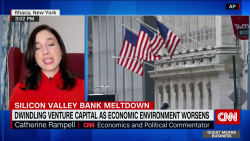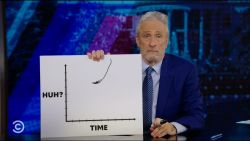Here’s where things stand for customers and employees of Silicon Valley Bank and Signature Bank, both of which failed this week and were promptly taken over by the FDIC.
Will customers have full access to all of their money on deposit?
Yes.
Over the weekend, the Treasury Department, the Federal Reserve and the Federal Deposit Insurance Corporation issued a joint statement noting that they were taking steps that “fully protec[t] all depositors. Depositors will have access to all of their money starting Monday, March 13. No losses associated with the resolution of Silicon Valley Bank will be borne by the taxpayer.”
A similar statement was issued for customers of Signature Bank.
That means customers will be able to access their insured deposits as well as their uninsured deposits from the “bridge bank” that the FDIC created for SVB deposits and the one it created for Signature deposits.
No. Chase is assuming all deposits of First Republic customers.
But the move by the three agencies to provide customers access to their uninsured deposits as well was critical. Most SVB customers, for instance, are businesses, and they have a lot more than $250,000 on deposit because they used SVB for much of their cash management, including payroll.
Will I still have access to banking services?
First Republic customers will have many of the same banking conveniences that they had before the bank was taken over.
“Depositors and borrowers … will have customer service and access to their funds by ATM, debit cards, and writing checks in the same manner as before. Silicon Valley Bank’s official checks will continue to clear. Loan customers should continue making loan payments as usual,” the FDIC said in a statement Monday regarding SVB.
It issued a similar statement for Signature.
What if I have a loan through First Republic?
Per FAQs specific to the SVB and Signature closures, customers’ lines of credit have been transferred to the new bridge banks the FDIC created to handle customers’ transferred deposits and banking services. The agency notes that customers should contact the bank if they have questions about their credit lines.
Can customers continue to keep their money where it is?
Yes, but the FDIC will communicate to customers how long they can continue to do so.
The specifics of each individual bank closure will differ. But, as an example, when the FDIC took over the Bank of Eastern Shore in Maryland on April 27, 2012, it gave customers until May 25 to open accounts at other institutions, but they had varying dates before that for the ending of different types of services (such as online banking services, direct deposits, etc.).
So far, the FDIC has not established any end dates of services for SVB or Signature customers.
What if a customer has a loan through SVB or Signature?
Customers with a loan still have to make payments, even if the FDIC ends up selling the loan.
For now, the agency states, “You may continue to send your payments to the same payment address… You will receive a letter advising you of any changes.”
Will SVB and Signature employees keep their jobs?
Very likely, but perhaps not for long.
Typically, in an FDIC takeover, the employees of the failed bank are kept on to help with the transition. Their salary and benefits are paid for by the FDIC during that time. “It is customary that we seek to retain these employees during the resolution process to ensure continued customer service and access to deposits,” a spokesperson said.
The FDIC offered Silicon Valley Bank employees 45 days of employment and 1.5 times their salary, according to reports. The FDIC did not confirm those numbers, telling CNN it does not discuss the salary arrangements it makes with staff at former banks. Nor did it respond to a query about whether employees who are not kept on would get severance pay.
Should the FDIC find a buyer for either bank, the acquiring institution will be the one deciding whether the banks’ employees stay on.
But, as with any corporate merger, if SVB and Signature are sold to other entities, it wouldn’t be surprising if some layoffs followed.

























